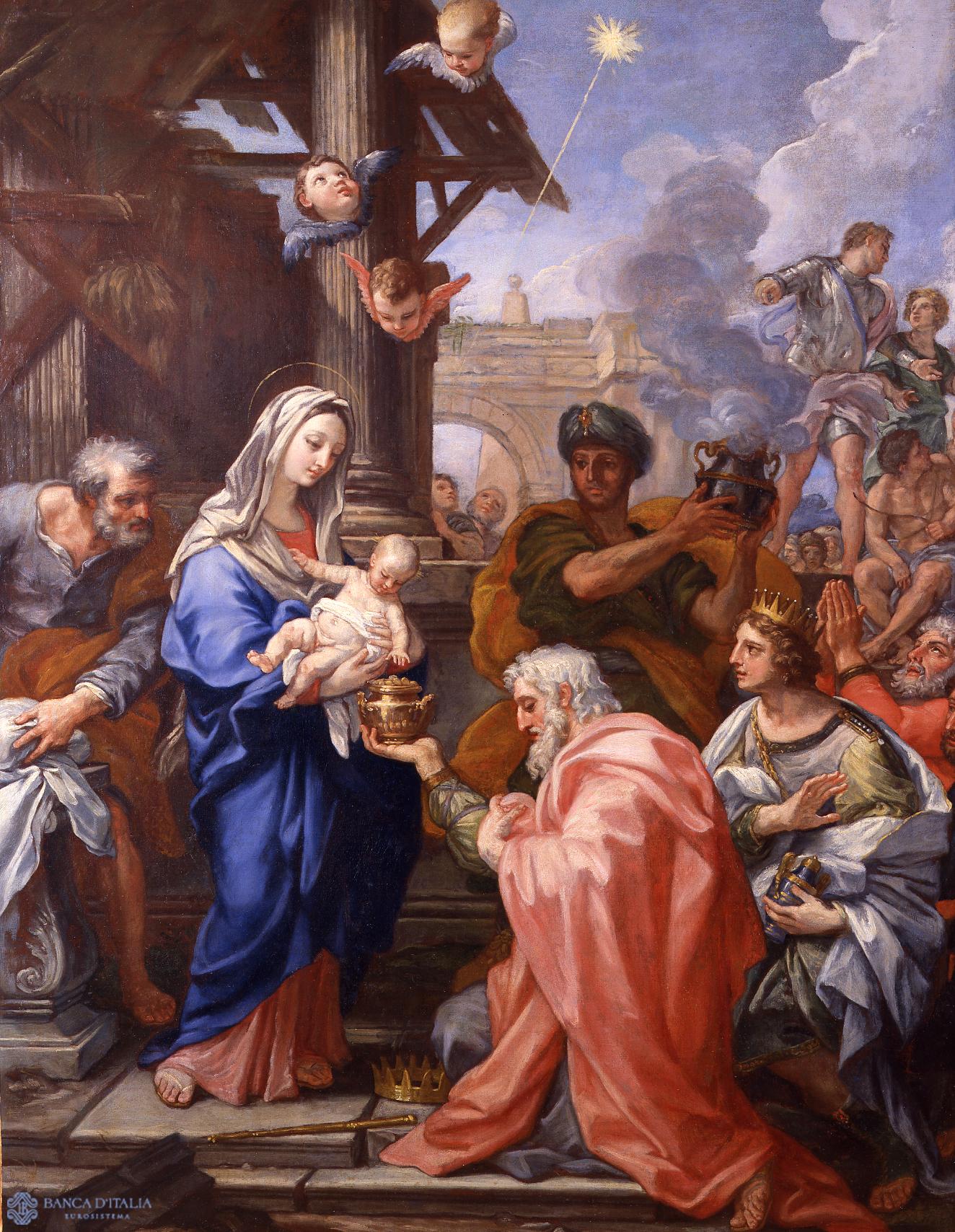The painting of the Adoration of the Magi, a superb example of Chiari’s work, brings elements from Apocryphal sources to this episode of the Gospel: the Wise Men from the East are apparently Melchior, King of the Persians, Balthazar, King of India, and Caspar, King of Arabia. They bring gifts of gold, frankincense and myrrh to extol the royalty, divinity and humanity of the Child of Bethlehem. The first king places his crown and sceptre on the ground to worship the Saviour. Behind him, a crowd watches the scene, while high overhead the star guides the Magi to the site. In the background, the ruins of imposing classical buildings symbolize the decay of the ancient civilization that the incarnation of Christ will renew.
Chiari, a highly academic painter, developed his style from the example of leading exponents of seventeenth-century Classicism, such as Andrea Sacchi and Guido Reni, and found a firm point of reference in the teachings of Carlo Maratta. The harmonious, studied composition of the figures is combined with an extremely refined use of colour, creating an astute combination of classical sobriety and Baroque whimsy. The same subject appears in several paintings by the artist and the present work compares well with the example in the Gemäldegalerie in Berlin.
Giuseppe Bartolomeo Chiari, Adorazione dei Magi
Adoration of the Magi
Painting
17th century AD
Religious

Artist
Date
End of 17th century
Material and technique
Oil on canvas
Measurements
122 x 95 cm
Compiler
Alessandro Zuccari
